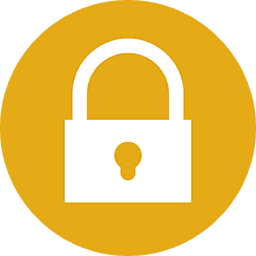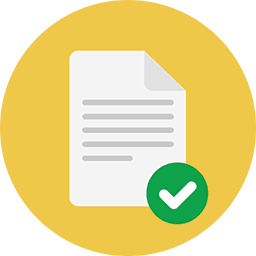RON
Remote Online Notary (RON)

Speed

Convenience

Security

Eco-Friendly

Quality
FAQ
What is RON?
It is an acronym for remote online notarization. RON is the means used to electronically notarize a document using a third-party (i.e. vendor) software platform which records the visual and audio communications of participants to the signing of a document even when the participants are not physically located in the same place. The practice was authorized in Florida on Jan. 1, 2020.
How does RON differ from "electronic notarization"?
Electronic notarization, first authorized in Florida in 2007, allows for the notarization of electronic documents by a notary public using an electronic signature and applying an electronic seal. Unlike RON, the principal must be in the same location as the notary public, the computer or other electronic device need not be connected to the internet, and there is no requirement that the notarization procedure be recorded. Also, unlike RON, the notary need not maintain an activity journal and identity is confirmed by the notary through personal knowledge or presentation of a valid form of identification. Electronic notarization is governed by Sec. 117.021, F.
Can any Florida notary public perform RON?
No, a Florida notary public may not perform a RON prior to registering as an “online notary public” with the Florida Department of State in accordance with the requirements of Chapter 117, F.S. and Rule 1N-7, F.A.C.
Can a Florida online notary public notarize the signature of someone signing outside the State of Florida?
Yes. Pursuant to Sec. 117.265(1), F.S., an online notary public physically located in this state may perform an online notarization regardless of whether the principal or any witnesses are physically located in this state at the time of the online notarization. Note, however, that Sec. 117.285(4), F.S., requires that a witness remote from the principal must verbally confirm on the recording that he or she is a resident of the United States and physically located within the United States or a territory of the United States at the time of witnessing.
May the signatures of foreign nationals be notarized remotely or is it only available to U.S. citizens?
Although the RON law allows for the notarization of foreign nationals, the identity verification process for those individuals is currently problematic because of the “knowledge-based authentication (KBA)” and credential analysis requirements of the statute. All signers must present a form of identification subject to verification and current technology cannot verify foreign passports. The principal must also go through KBA, which currently requires a U.S. tax identification number and U.S. credit history. It may therefore be difficult to qualify foreign nationals for RON until sometime in the future
If the signer is personally known to the RON notary, may the KBA process be skipped to allow for the remote notarization of a foreign national?
Apparently not. Unfortunately, RON platform providers so far seem to be requiring the KBA process in all cases, even for U.S. citizens.
Can the notary also serve as a witness?
Yes, but the notary must sign both as the notary and again separately as a witness just as has always been the case. See TN 10.07.04.
Who is required to store the RON recording for 10 years?
The notary is responsible for maintaining the recordings as well as the required electronic journal for a period of 10 years after the date of the notarial act. However, Sec. 117.245(4), F.S. allows the notary to delegate that responsibility by contract to a secure repository provided the Department of State is notified of the delegation within 30 days. (Note: the rules are slightly different for electronic will signings as the recording must be maintained by a “qualified custodian” in accordance with chapters 731 and 732, F.S.).
Is a digitally signed note acceptable to a lender? Can an electronic note be the basis of a foreclosure action?
Yes, that has been the case since the advent of electronic notarization in Florida. See Rivera v. Wells Fargo Bank, N.A., 189 So.3d 323 (Fla 4th DCA2016). Check the written loan closing instructions and contact the lender for approval to close digitally and utilize RON.
Can a signer be compelled to use RON?
No. The principal must voluntarily agree to utilize remote online notarization.
Do I need to obtain lender approval if the borrower wishes to sign the loan documents remotely via RON?
Check the written loan closing instructions and contact the lender for approval to close digitally and utilize RON.
If the signer fails the credential verification process, can they retry that same day?
Sec. 117.295(3)(a) allows for the offering of one additional attempt in the event of a failed attempt. Since the statute does not require the offering of an additional attempt on the same day you should check with your vendor to determine their policy.
Can an online notary avoid the use and costs of a RON servicer vendor and notarize an instrument using FaceTime?
No. An online notary must identify and use a RON service provider whose audio-video communication technology and processes they will use. (Sec. 117.225(5), F.S.)
Can the witness and the notary be in the same location and share a screen?
The witness and notary can be on the same screen as long as the witness and principal can see and hear each other, and the witness hears the principal make a statement to the effect the principal has signed the electronic record (See 117.285(3), F.S.).
Do you need the IDs of the witnesses to ensure they are disinterested parties?
No. The IDs are for the purpose of verifying the identity and confirming the U.S. residency of a witness who is not physically present with the principal. If appearing with the principal, no ID is needed; the witness need only announce his or her name and current address for purposes of the recording (Sec.117.285, F.S.). Disinterest of a witness must be separately determined.
How are the charges related to the execution of documents through a RON service provider’s platform reflected on the closing statement and/or CD?
Title agencies are permitted to charge the third-party fees as separate line items as long as the consumer has been notified these fees represent responsibilities of the agency, which were contracted to a third party. The consumer must also understand these fees will be charged to them either as part of the closing services fee total, or in addition to the agency's closing services fee.
Note: The use of RON has been changing and developing day to day, particularly during the COVID-19 pandemic. Availability of RON for any transaction will require the approval of lenders, underwriters and the parties for any given transaction.
Definitions
eClosing
A real estate closing in which some or all of the closing documents are signed electronically.
Electronic Signature
The Florida Uniform Electronic Transaction Act (Sec. 668.50, Florida Statutes) (“UETA”) defines Electronic Signature as "an electronic sound, symbol, or process attached to or logically associated with a record and executed or adopted by a person with the intent to sign the record."
eNotarization
This term refers to the notarization of a signature that is performed electronically by the notary and not by “wet signature” of the notary. Current Florida law allows in person eNotarization (iPEN), requires the notary to be in the physical presence of the signer (just as with paper notarization), and that the notary comply with Sec. 117.021, F.S., and Rules 1N-5.001 and 5.002, F.A.C.
eRecording
An eRecording is the process of electronically preparing, uploading and submitting documents to the clerk for recording through a web-based service or integrated systems. The clerk receives the documents electronically for processing and reviews the documents for accuracy. After review and approval, documents are processed, stamped, officially recorded with the county, and put in the public records.
Hybrid Closing
A Hybrid Closing is a transaction in which some documents are signed electronically and some are signed on paper. Signatures on paper are often referred to as a “wet signature.”
Remote Online Notarization
This is the new buzz in the industry, also known by the acronym “RON” This allows an
eNotarization to be done when the notary and the signer are not in the physical presence of each other. They communicate through audio visual technology. Beginning Jan. 1, 2020 Florida allows remote online notarization (RON) which complies with ch. 117, F.S. Rules to be promulgated for RON will be published in ch. 1N-7, F.A.C
eNotarization to be done when the notary and the signer are not in the physical presence of each other. They communicate through audio visual technology. Beginning Jan. 1, 2020 Florida allows remote online notarization (RON) which complies with ch. 117, F.S. Rules to be promulgated for RON will be published in ch. 1N-7, F.A.C
